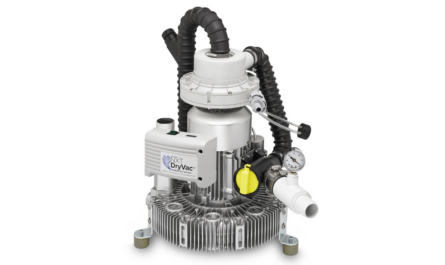Why KPIs are the reality check you and your business need.
By Tarek Aly, BDS, MBA, Co-Founder, Chief Operating Officer, OrthoDent
Establishing systems within your organization is a great way to bring order to chaos. Without the clinical systems to keep our processes in check, there would be no way to check progress or find weaknesses within your practice.
I started OrthoDent Management in 2012 as a way to help dental practices establish systems and processes within their practices to improve the daily operations and patient care processes of practices like yours. I specialize in building clinical systems for people in a hurry.
The word system comes from systema, which is the process of putting together to become a greater concept. A sort of composition of different parts, think of the respiratory system or the cardiovascular system. Ideally, all of these different pieces are working together in harmony for a greater purpose.
Shedding the ego
The first step to building an effective clinical system of checks and balances within their practice is a personal one. For dentists, the first thing you need to realize is that you suck. Everyone around you tells you how awesome you are, building your big dentist ego – in reality, what you need is a reality check.
Trust me, I’m not an exception here. It’s what I needed too. I looked in the mirror one day and said to myself, “Hey, you suck. There are a lot of holes in your business. You’re losing a lot of money in revenue cycle management. You are unhappy. Your teams are unhappy. The retention rate sucks. Look at what you built.”
The ego is one of the biggest obstacles to success in any industry. It’s hard to grow and change when you’re existing in a state where you don’t believe you need to change. Getting your ego out of the way is the first step to really freeing yourself up to build a great clinical system for your practice. Once that’s done, you can start setting up your key performance indicators (KPIs).
Learning to love the process
I love KPIs because they show the truth. They tell you exactly where you are right now, with no one sugar coating it. You can analyze and measure the data and start building standard operating procedures from there. KPIs are designed to benchmark and measure your initiatives, giving you a clear picture of how your practice is performing and where it could use some work.
The standard operating procedures are step by step processes that help you achieve your goal. First, you realize that you suck, you measure your KPIs, you analyze the data, you build your standard operating procedures, you implement and train – and that still might not be enough! Make sure that you are doing quality checks, staying in compliance, and ensuring that the process is working.
Part of that process is repetition until you find something that works, but it’s also important to remember that your stage of the business cycle is different than everyone else’s. Just because some of the bigger companies are in a different stage of the process than yours doesn’t mean that what you are doing is the wrong path. They could be focusing on completely different things than you are, and that’s perfectly fine! You are at a different stage – focus on your journey.
Different kinds of KPIs
KPIs come in all different shapes and sizes, measuring qualities and processes of your practice in various forms and modes. Clinical KPIs focus on the patient care processes and clinical procedures; operational KPIs focus on your day-to-day operations; financial KPIs track the money that’s coming in and out of your practice through revenue, expenses, salary, benefits, etc.
Opening your first practice, or even just a new practice, requires a certain set of strategic KPIs that you can set as milestones to help you to flesh out your business in the early stages.
After starting a business, one of the first things you likely developed was a target market. You had some sort of patient care milestones – working with Invisalign, treating sleep apnea, or just building a successful comprehensive care program.
Operational KPIs deal with the day-to-day operations of your practice – number of new patients, working hours, total patient scene, average care per visit, average care per day, insurance versus cash, etc. There are plenty of practices that don’t track operation KPIs, but they should because of the value and perspective it brings to the operator. It’s not a lot of heavy work, but it is important to get a better look at how you are doing day-to-day.
For example, can you do an endo without taking an X-ray? If you can, I don’t want to go to your office. It’s the same thing with measuring key performance indicators. KPIs are the X-rays you take before making a decision.
Tarek Aly practiced Dentistry and Periodontal surgery for years while simultaneously working in Management and Marketing. His expertise includes M&As, Business Valuation, Human Resource Management, Business Operations, Dental Organizations Management, and Dental Support Organizations platform development and management. He is currently the Chief Operations Officer/Co-founder of OrthoDent Management LLC.






